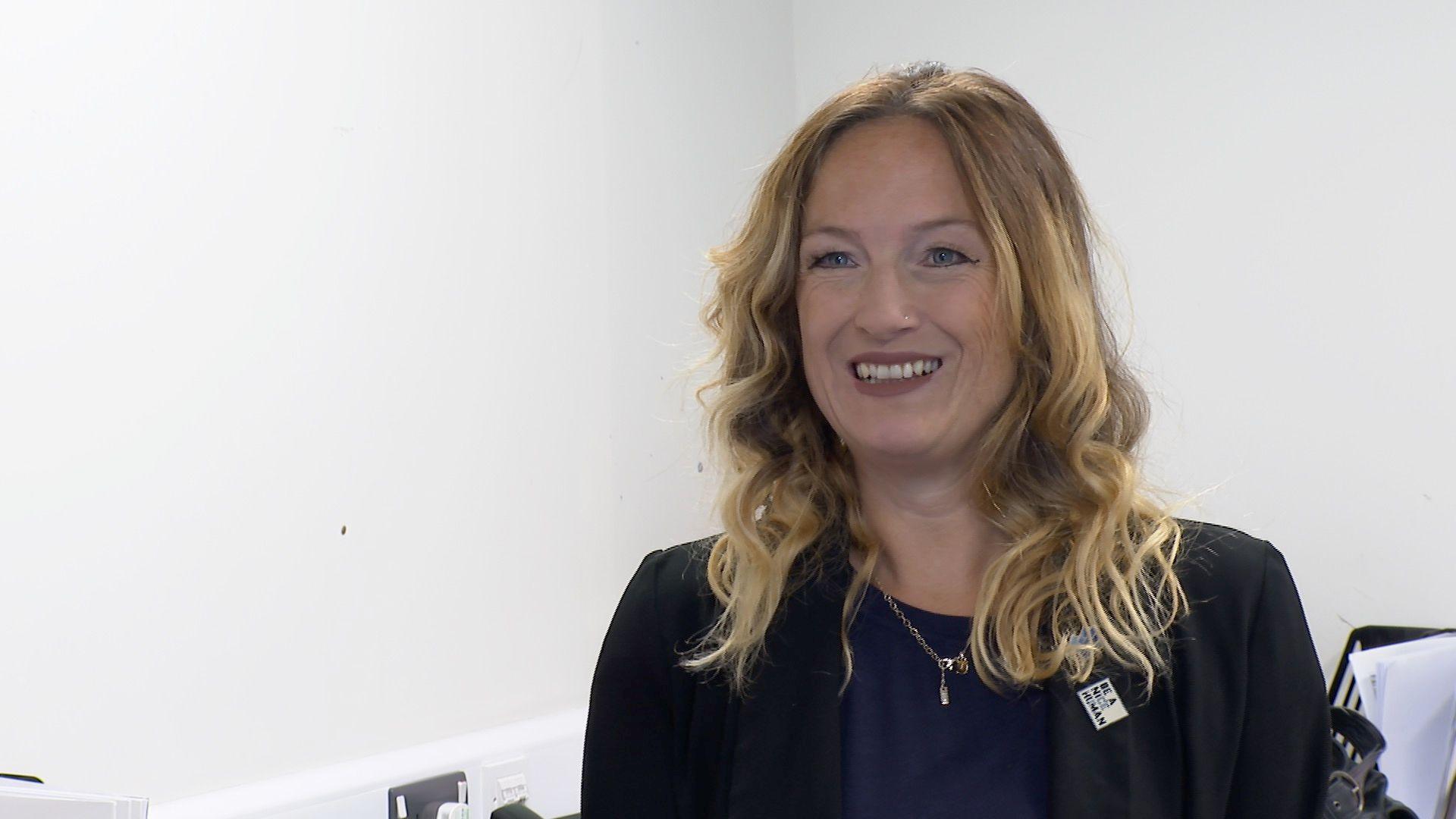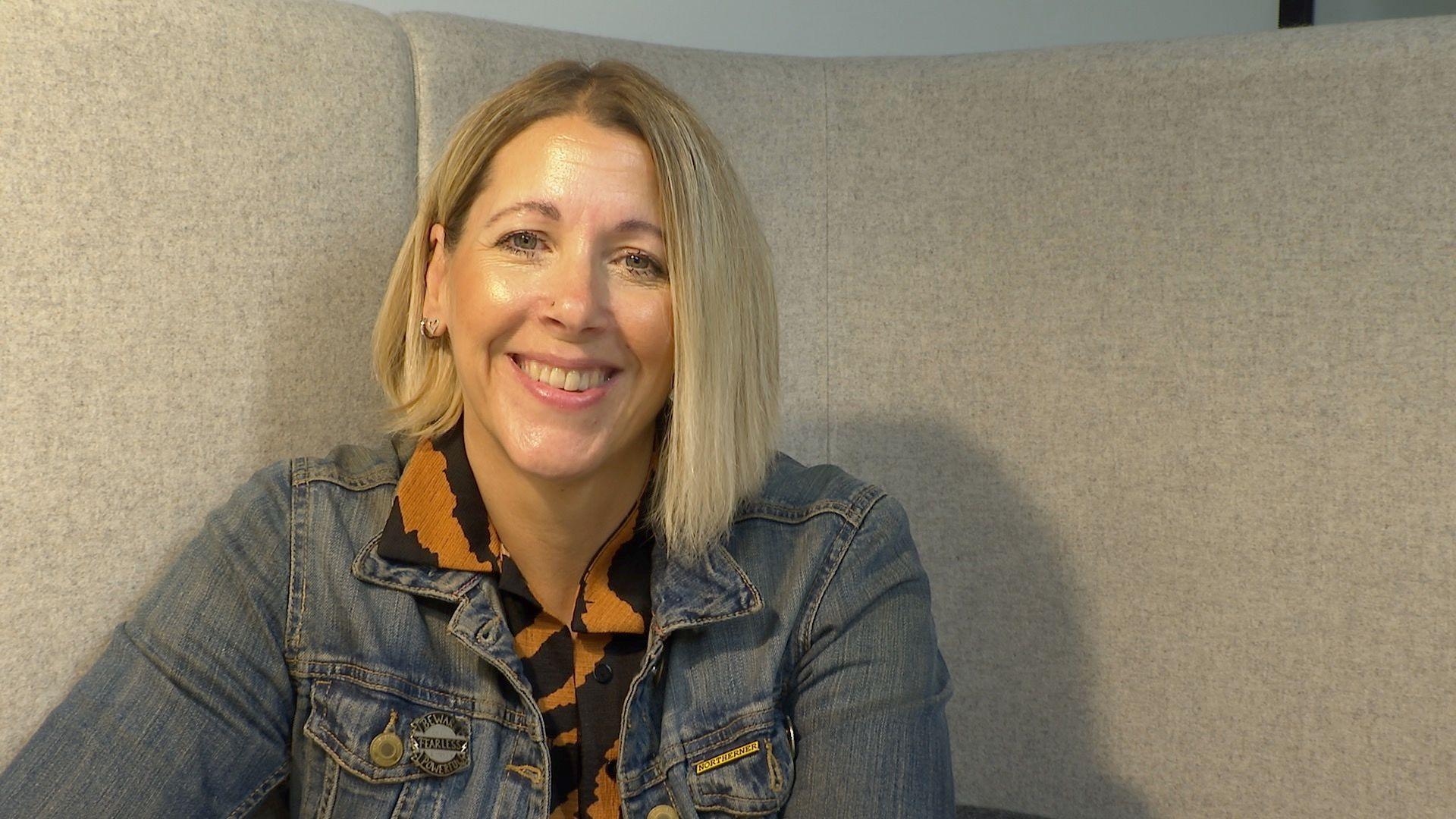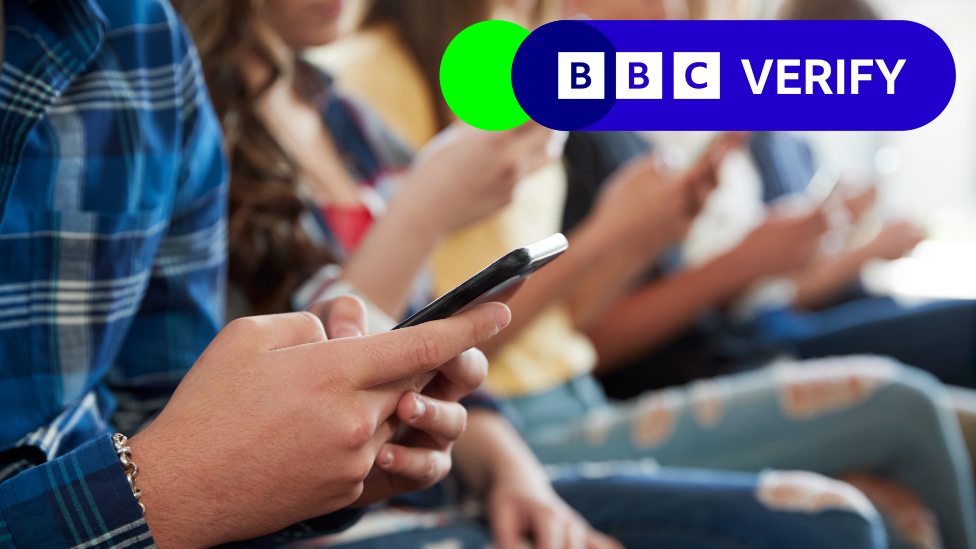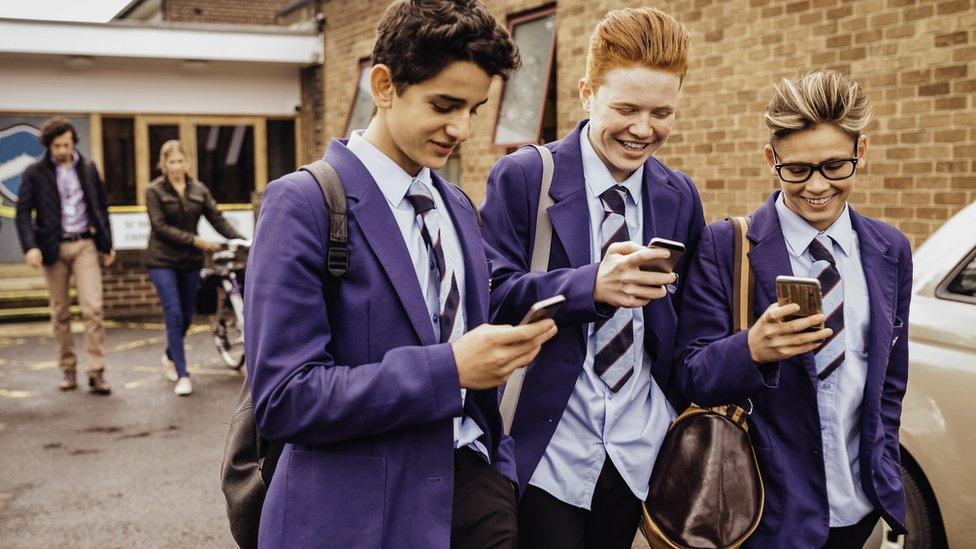School says mobile phone ban helping social skills

Students from UTC Plymouth and Millbay Academy welcomed a ban on mobile phones in the classroom
- Published
The head teacher of a school in Devon that banned the use of mobile phones five years ago says teachers have noticed improvements in school work and social activity.
UTC Plymouth allows pupils to bring their phones to school but they have to hand them in at the start of the day.
Executive head teacher Jo Ware said the policy had helped drive up standards and prepare children for the workplace.
In February schools in England were given new guidance intended to stop the use of mobile phones during the school day.

Jo Ware is executive head teacher of UTC Plymouth and Millbay Academy
Ms Ware said oral skills and communication were key skills identified by employers.
"When students are using their social time to be on mobile phones and devices, they are not learning the art of eye contact," she said.
Millbay Academy, which is also led by Ms Ware, introduced a phone ban about a year ago.
She said the students were now used to it and many welcomed the rule.
One of the students, Maisie, 15, said: "I think its is good for our learning and good for mental health as well.
"People don't go on their phones and cyber-bully people and it also helps keep focus."

Dr Hazel Mycroft said mobile phones were affecting children's ability to focus
Dr Hazel Mycroft, a senior lecturer in psychology at the University of Exeter, said children were "getting hits of dopamine all the time" through their phones.
"We know that phones and these short Reels affect our brain chemistry," she said.
"It is affecting children's ability to focus.
"When you take a child's phone away you can see that they get irritable, they get angry, they want to check their phone all the time.
"This is a result of the fact that they are exposed to this all the time."
Follow BBC Devon on X (formerly Twitter), external, Facebook, external and Instagram, external. Send your story ideas to spotlight@bbc.co.uk, external.
Related topics
- Published19 February 2024

- Published19 February 2024

- Published20 June 2018
